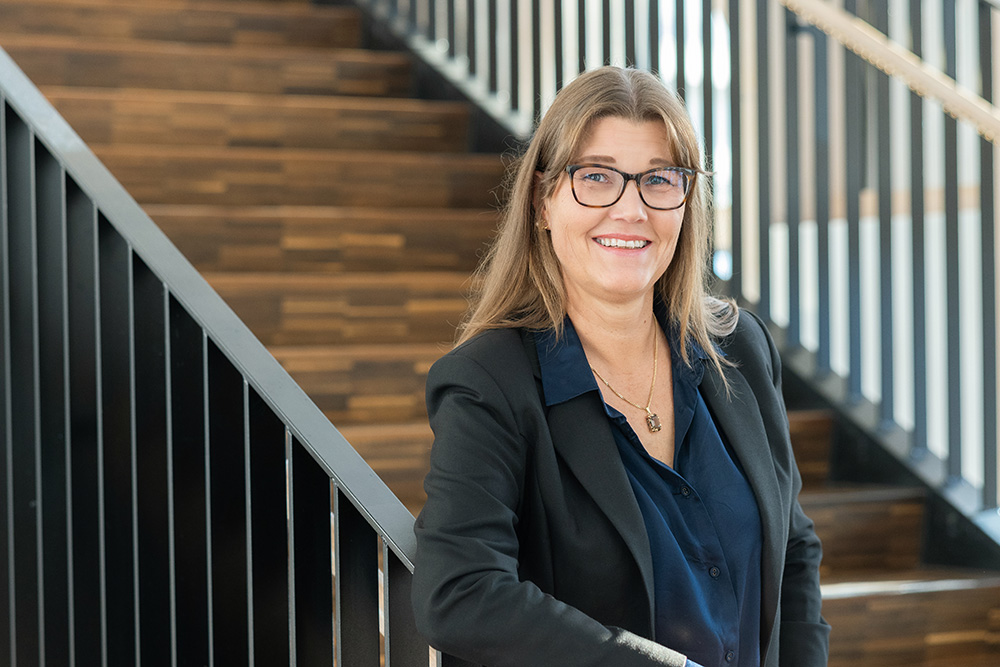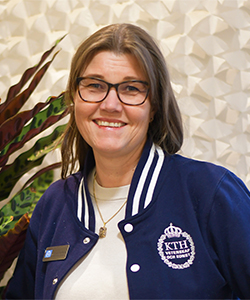From CEO to Business Coach at KTH

After decades as a CEO of large companies, she returned to the university - now in the role of a business coach. Today she helps researchers and students realise their dreams through KTH Innovation.
“I want to encourage everyone with a connection to KTH and a passion for socially useful ideas and inventions to take the opportunity to test them on the market with our help,” Eva Halén says.
After nearly 30 years as a business leader, Eva Halén changed her life path two years ago and returned to school. At KTH Innovation , she is one of nine business developers who guide KTH-affiliated people who want to explore their innovation ideas.
“We are a group of coaches with different profiles and huge networks, many of us have started and run companies ourselves. With us, researchers and students can get help in bringing their inventions to the market - completely unconditional, “no strings attached”, Halén says.

She has a degree in civil engineering and sees her technical background as a great advantage in her professional role.
“When I graduated from KTH in mechanical engineering in 1990, Sweden was in a recession and there were no jobs for many of us newly graduated mechanical engineers. I had done my thesis at Electrolux, and learned German on a scholarship from the German-Swedish Chamber of Commerce, so I managed to get a job as a development engineer at Electrolux – in Germany.
Eva Halén's career took off, and after a few years she became CEO of two Swedish subsidiaries of the Electrolux Group: Home and Service.
“I had always dreamed of leading groups and people, and I quickly realised that all difficult issues in a company sooner or later end up on the CEO's desk...”
"The most important thing is to listen"
She says that as head of service, which was one of her first management roles, she developed a “certain fear of the telephone”.
“Anyone could call me and complain about anything. I had to deal with a lot of anger in customer calls and managed the situations partly by knowing of the actual technology behind the products.”
“I was also helped by an experienced colleague who told me “The most important thing is to listen, not talk. You have to fix the person first and then the machine.”
The next step in her career was a five-year stint as head of Sweden at the hearing technology company Audika, where she was responsible for 200 employees, before becoming CEO of a start-up research-driven biotech start-up.
“I was instrumental in taking the product from the lab to the customer. We went from basically zero to a couple of million in sales during my time at the company.”
What qualities do you think are important in order to be successful with your ideas and innovations?
“I would say that being a bit adventurous is an advantage, and that curiosity and genuine interest go a long way. You don't even have to have an idea to come to us for help, you can choose to see start-ups as a career path. Maybe you want to become a manager and work on developing someone else's business idea - our teams are always looking for and need many different types of people.”
What kind of business ideas and innovations would you most like to get involved in developing further?
“My personal favourites are product ideas that combine hardware and software: tangible innovations in traditional areas, such as medical devices that can impact the lives of many people. Things that often get lost in the hype of AI and quantum mechanics.”
Text: Katarina Ahlfort
Photo: Juliana Wiklund
